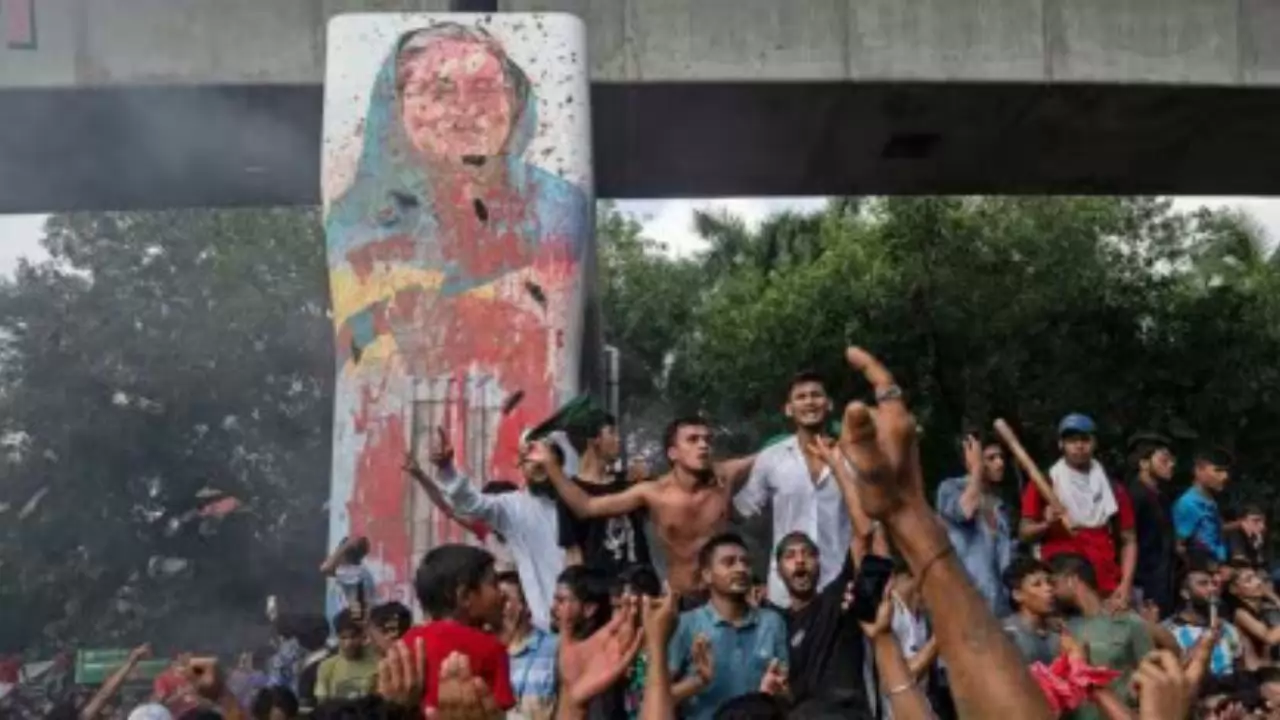
Intelligence reports indicate that these groups had meticulously planned the protests for several months, with significant funding from Chinese organizations operating in Pakistan. (X)
New Delhi: The plan to change power in Bangladesh reportedly originated in London, with Pakistan's spy agency, Inter-Services Intelligence (ISI) playing a crucial role. According to intelligence reports, this plan led to massive protests against the reservation system in Bangladesh, culminating in the fall of Sheikh Hasina's government. Bangladeshi officials have claimed to have evidence of meetings between the acting chief of the Bangladesh Nationalist Party (BNP), Tariq Rahman, and ISI officials in Saudi Arabia.
Reports indicate that some of these strategic meetings also took place in London. During these discussions, detailed plans were formulated to destabilize Bangladesh and incite protests aimed at toppling the government. Tariq Rahman, currently in exile, has been previously accused of similar destabilizing activities in Bangladesh.
An India Today report highlighted that at the beginning of the violence, several "anti-Bangladesh" handles on X (formerly Twitter) were actively fueling the protests. Over 500 negative tweets were directed against Sheikh Hasina's government, many originating from Pakistani accounts. Sources suggest that the goal of the Pakistani army and ISI was to destabilize Hasina’s administration and install the pro-Pakistan BNP in power.
China, through the ISI, also played a part in inciting the protests. The student wing of Bangladesh Jamaat-e-Islami and the ISI-backed Islami Chhatra Shibir (ICS) were instrumental in turning the student protests into a larger political movement, resulting in Hasina fleeing to India. Intelligence reports indicate that these groups had meticulously planned the protests for several months, with significant funding from Chinese organizations operating in Pakistan.
An examination of social media activity during the protests revealed that most posts against the Awami League, including videos of violence and defamatory content about Sheikh Hasina, were shared by BNP-affiliated accounts. Many of these posts were promoted by accounts based in the US.
Tarique Rahman is a prominent political figure in Bangladesh, serving as the acting chief of the Bangladesh Nationalist Party (BNP) and son of former Prime Minister Khaleda Zia. Born November 20, 1967, Rahman was educated in Bangladesh and abroad. Before entering politics, he worked in the business sector. Rahman has played a significant role in BNP’s political strategies and decisions. However, he has faced multiple accusations of corruption and destabilization and has been living in exile for several years. The Bangladesh government has filed several cases against him, including charges of corruption and abuse of power.





Copyright © 2026 Top Indian News
